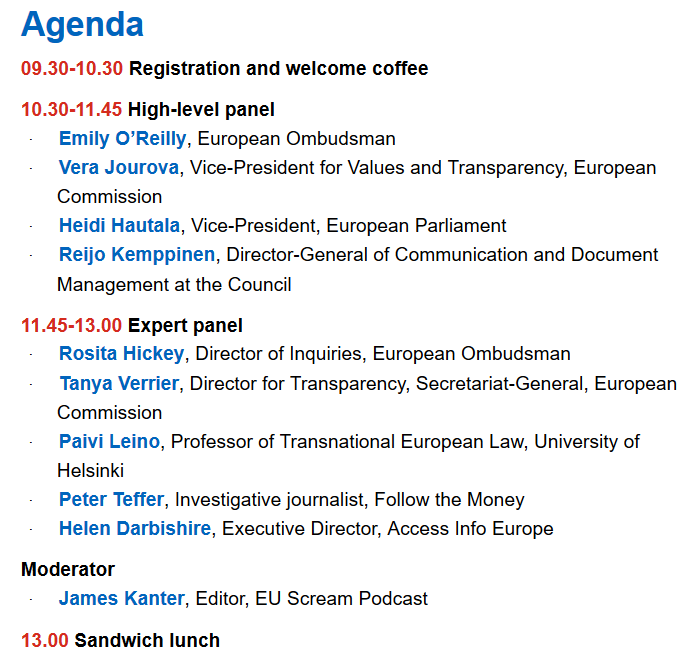High-level and expert panels to explore the impact of new technologies on the functioning and expectations of the transparency concept.

On 15 November, the office of the European Ombudsman will hold a hybrid conference in Brussels entitled “Access to documents: what’s next?”.
Transparency in an age of technological revolution
The Ombudsman’s conference will focus primarily on the future of Regulation 1049/2001 in light of the significant advances in information and communication technologies that have occurred since the introduction of this legislation. Indeed, chat applications, regular communication via social media accounts, and a significant change in the public media landscape and journalist-institutional relations throw up the question to what extent the underlying premises of the public access to documents principle still remain the same and a central as they were upon their initial introduction, or whether they are met by different expectations and a different communicative reality.
These questions will first be discussed by a high-level panel of EU politicians and civil servants, and then by an expert panel of academics (including the TrUE project’s Päivi Leino-Sandberg) and civil society representatives.

Those interested in attending the event can register here. The event can be attended both on site or online.
Regulation 1049/2001 twenty-year anniversary
The Ombudsman’s conference is organised in the context of the 20th anniversary of Regulation 1049/2001 on the public’s right of access to the EU institutions’ documents. This legal instrument was adopted in May 2001 and entered into force in December of the same year. It was the first fully-fledged EU access to documents act and remains in place unchanged until today, in spite of repeated efforts to recast it.
The Ombudsman regularly organises and participates in public and academic events dedicated to the question of access to documents. Inquiries into this EU policy comprise about a quarter of all complaints she receives. This conference is the third this year dedicated to the 20th anniversary of Regulation 1049/2001, the other two having been organised by the EUI in Florence and the University of Helsinki.

